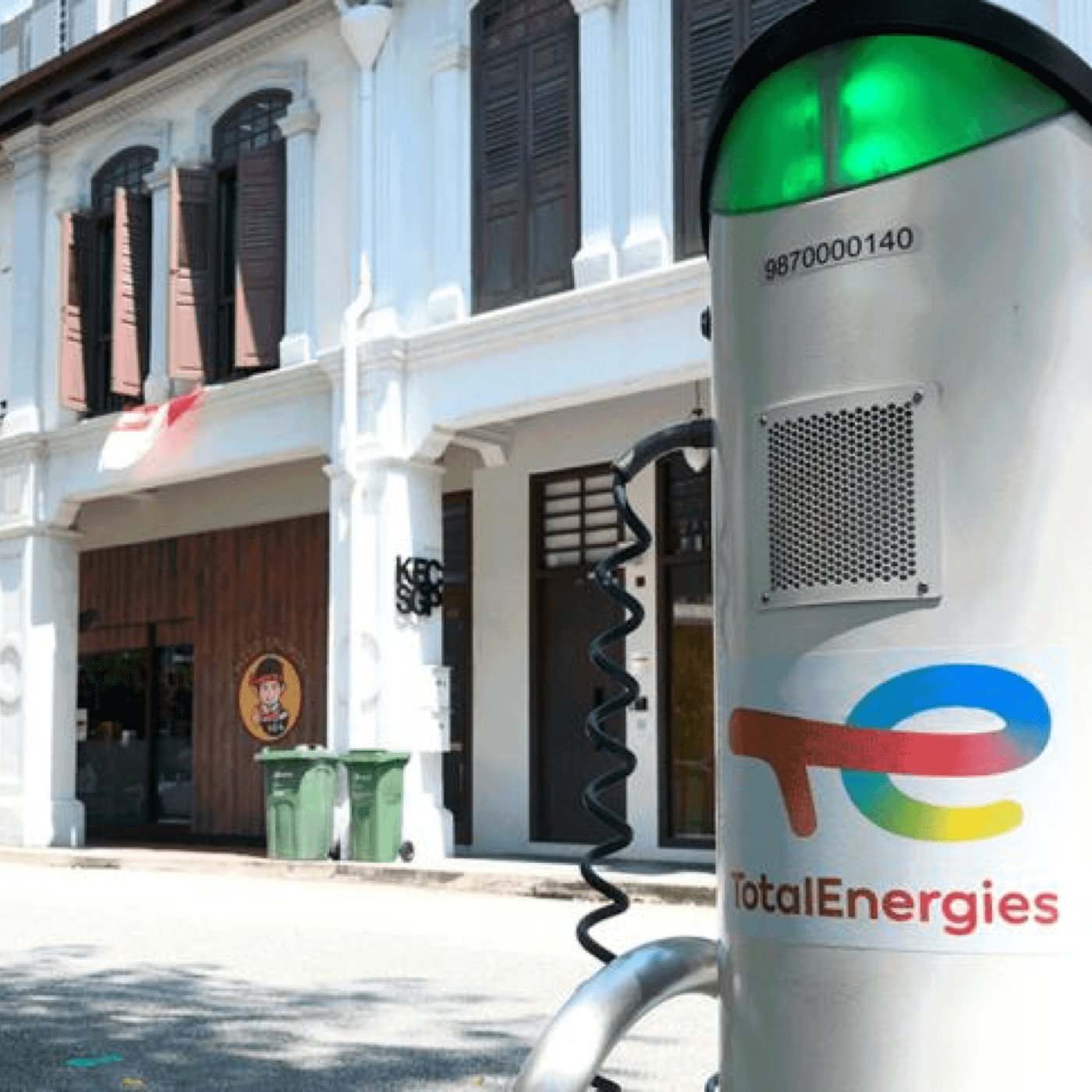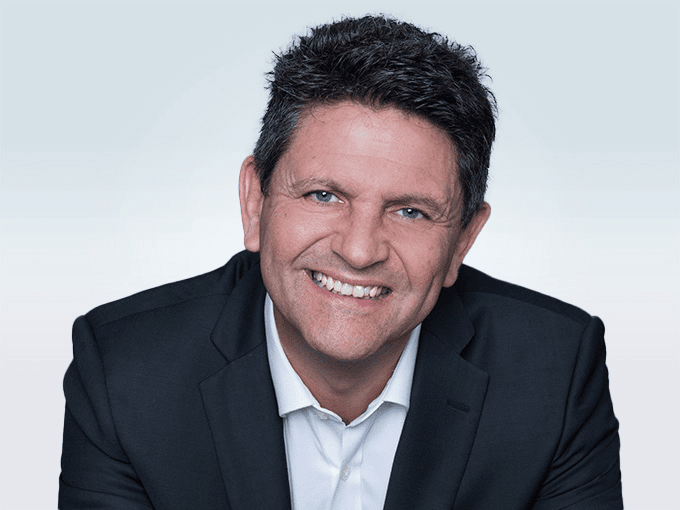OCBC Sustainability Innovation Challenge 2023 (the “Programme”) is organized by Oversea-Chinese Banking Corporation Limited, UEN No.:193200032W (“OCBC”) and Padang & Co Pte Ltd, UEN No.: 201406957G (“Padang”), henceforth collectively known as “the Organisers”.
These Terms and Conditions (“T&Cs”) govern the Programme. Submission of the Application Questionnaire (as defined in clause 3.2) constitutes participation in the Programme and acceptance of these T&Cs as may be amended by the Organisers from time to time, subject to the Challenge Owner’s prior written consent.
Clause 1 – DEFINITIONS
“Website”: https://thedelta.cc/en/page/ocbc-sustainability-innovation-challenge-2023-en
“Deliverables”: the Application Questionnaire (as defined in clause 3.2), the Proposal (as defined in clause 4.1 and any further materials and/or documents to be provided by the Participants in accordance with these T&Cs).
“Participant”: any company that submits an Application Questionnaire in accordance with clause 3.2.
“Challenge Owner”: TotalEnergies Renewables DG Development Asia Pte. Ltd.
“Challenge Statement”: a description that sets out a problem that the Challenge Owner would like to solve.
Clause 2 - CONDITIONS FOR ENTERING THE PROGRAMME
2.1 Participation in this Programme is free. Each Participant shall be responsible for all its costs of entering and participating in the Programme, including without limitation all costs of development, prototyping, manufacture, testing, marketing, video production, licensing, searches, registration and protection of intellectual property rights, legal costs, travel cost, costs of obtaining third party consents and licences. Each Participant recognises that there is no guarantee that they, or any other Participants, will win the Programme and that participation is entirely at each Participant’s own risk.
2.2 By participating in the Programme, the Participant will have read and fully accepted these T&Cs in their entirety without reservation.
2.3 Any Participant who does not abide by the terms of these T&Cs at any time during the Programme will be automatically disqualified from the Programme.
Clause 3 - APPLICATION AND ACCESS TO THE PROGRAMME
3.1 The Programme will be held during the period from 20 July 2023 to 2 November 2023, both dates inclusive (“Programme Period”). The Organisers and Challenge Owner reserve the right in their sole discretion to cancel, modify or suspend the Programme or any part thereof at any time or re-schedule the dates of the Programme or extend the Programme Period.
3.2 To apply for the Programme, the Participant must fill in a questionnaire (“Application Questionnaire”) on the Website on or before 2359 hours Singapore time on 15 September 2023 (“Deadline”).
3.3 Any Application Questionnaire containing incomplete information will not be accepted as an application entry.
3.4 The Participant agrees to be contacted through email sent by the Organisers during their participation in the Programme. The Participant also agrees to be contacted by phone.
Clause 4 - PHASES OF THE PROGRAMME
4.1 Phase 1: Submission for shortlisting
4.1.1 To be shortlisted, each Participant must complete their proposal in English detailing their solution to a particular Challenge Statement (“Proposal”). If the Proposal includes a pitch deck, the pitch deck must be submitted in PPT, PPTX or PDF format.
4.1.2 If the Organisers are unable to access and/or read the Deliverables, the relevant Participant will be notified and have the responsibility to re-submit the Deliverables within 12 hours of the notification being sent out by the Organisers.
4.1.3 Each Participant’s Proposal must be submitted online by the Deadline,and must include all necessary documents and details as stipulated by the Organisers, on the Website.
4.2 Phase 2: Pitch Preparation
4.2.1 The Organisers will shortlist Participants for each Challenge Statement (the “Shortlisted Participants”) to further develop their Proposal, through consultations with the Challenge Owner. All other Participants will be deemed to have been eliminated from the Programme.
4.2.2 A Proposal should, subject to consultations with the Challenge Owner, include the scope of the Proposal, milestones, cost estimates and potential intellectual property rights arrangements with the Challenge Owner, for the co-development of the Proposal for piloting with the Challenge Owner.
4.2.3 Participants who have submitted multiple Proposals will have only one (1) Proposal shortlisted for each Challenge Statement, to be determined at the Organisers’ sole discretion.
4.2.4 Shortlisted Participants that remain uncontactable and/or fail to accept the Organisers’ invitation by the date and time to be stipulated will be deemed to have forfeited their continued participation in the Programme. In such an event, the Organisers shall have the absolute discretion to select other Participants in their place. The Organisers’ decision with regard to the shortlisting of Participants (and any dispute relating thereto or arising thereof) is final.
4.3 Phase 3: Selection of winner(s)
4.3.1 The Shortlisted Participants will be allowed an opportunity to present their Proposal (the “Pitch”) to a panel of Judges (consisting of representatives from the Organisers, Challenge Owner and/or industry experts) to be appointed by the Organisers at their sole discretion (the “Judges”). The event will take place at a time and place to be decided by the Organisers and which shall fall approximately two (2) months after the Participants have been shortlisted (“Pitch Day”).
4.3.2 Pitches may be in the format of a working prototype, presentation slides or video.
4.3.3 If a Shortlisted Participant does not present their Pitch during the time slot allocated to them on Pitch Day, the Participant is deemed to have forfeited their participation in the Programme.
4.3.4 Details relating to Pitch Day as set out in the aforementioned paragraphs will be confirmed at a later date and are subject to change at the sole and absolute discretion of the Organisers and Challenge Owner.
4.3.5 After the Pitch Day, the Judges may select one (1) winner for each Challenge Statement.
4.4 The Organisers, Challenge Owner and/or the Judges shall have the right to request for clarifications and/or any further materials and/or documents from the Participants at any time prior to the selection of winner(s) for the Challenge Statement(s).
4.5 Each Participant undertakes, represents and warrants that the content of the Deliverables and the Pitch, and any other additional materials and/or documents submitted for the purpose of the Programme, is and will be produced by itself. If it is found that such content has been plagiarized, the Participant will be disqualified.
4.6 Each Participant expressly acknowledges that the use of photographs, images, any form of media or documents must be free from copyright and/or intellectual property infringement. The Organisers and Challenge Owner will not be held responsible for the said use of photographs, images, any form of media or documents which third parties have rights to.
Clause 5 - ACKNOWLEDGMENTS AND UNDERTAKINGS
5.1 The Participant acknowledges that:
5.1.1 The Judges' decisions in all matters relating to the Programme, including eligibility of the Participant and the selection of the winners, will be final and the Judges shall not be obliged to entertain any correspondence or queries in relation to the same. The Judges shall not be obliged to select a winner if, in their view, none of the Proposals is of sufficient merit. It is the responsibility of the Participants to understand the judging criteria.
5.1.2 The Organisers, the Judges, and the Challenge Owner are not obliged to adopt any of the Proposals that are developed under this Programme. The Organisers may in their sole discretion facilitate the co-development and piloting of Proposals between the Participant and the Challenge Owner.
5.1.3 The Organisers have the right to disqualify Proposals which, in their sole discretion, are deemed irrelevant, offensive, and/or do not comply with these T&Cs. The Organisers have the right to disqualify or replace any winner if they are found to be in breach of these T&Cs. Such disqualified winners will be required to refund the full amount of any funding awarded.
5.1.4 Participants shall be either virtually or physically present for all meetings requested by the Challenge Owner and events as scheduled by the Organisers ("Events"). At least 1 team member is to be present at any Event to represent the Participant. Participants shall use all endeavours to encourage all team members to attend and participate. In the event that the Participant(s) cannot be present, a valid reason will be given as early as possible. Failure to comply may result in the Participant being disqualified from the Programme.
5.2 The Participant undertakes not to enter their ideas or any part of the Proposal (including software, prototypes or products) in another competition or exhibition before the expiry of the ROFR (as defined in clause 7.3).
Clause 6 - FUNDING
6.1 The winner of each Challenge Statement will be awarded grant funding by OCBC from a grant pool of Hundred and Fifty Thousand Singapore Dollars, which may be channeled to support any potential co-development and pilots with the Challenge Owner. The amount of the grant, the timing for the announcement and method of disbursement, will be determined at the sole discretion of the Organisers.
Clause 7 - INTELLECTUAL PROPERTY
7.1 By participating in the Programme and submitting the Deliverables, each Participant affirms that the Deliverables are their original work and that the Participant(s) have the necessary rights to submit the Deliverables. The Participant(s) further warrant that the submission does not violate any law or regulation or any rights of any third party. The Organisers reserve the right to disqualify any Participant in a scenario where the Organisers believe in its sole and absolute discretion that the submitted Deliverables or any part thereof infringes upon or violates the rights of any third party.
7.2 The Participant warrants that any and all of the copyright, patents, trademarks, design rights, know-how, and other intellectual property and proprietary rights subsisting in or used in connection with the Deliverables (“Intellectual Property Rights”) are and remain the sole property of the Participant.
7.3 Participants grant Challenge Owner a right of first refusal ("ROFR") to collaborate with said Participant on any commercialisation of foreground IP generated (“Programme IP”), if any, during the Programme Period. The ROFR shall expire and cease to have effect 180 days after the Programme Period. For the avoidance of doubt, the ROFR extends to intended commercialisation of the Programme IP by the Participant alone. Participants shall fully retain their respective background IP rights, unless otherwise agreed between the Challenge Owner and the Participant. Alternate or future arrangements of ownership of foreground IP created post-Programme Period shall be negotiated separately between the Participants and Challenge Owner and independent of the Organisers. This clause 7.3 shall apply solely between the Participant and Challenge Owner.
7.4 The Participant shall indemnify, defend, and hold harmless the Organisers and the Challenge Owner against any and all claims, suits, losses, damages, costs, fees, and expenses (including legal fees on an indemnity basis) arising out of or in connection with a breach of this clause 7.
7.5 Nothing in these T&Cs constitute a license of the Intellectual Property Rights by the Participant to any of the Organisers.
Clause 8 - TERMS OF CHALLENGE OWNER
8.1 If applicable, Participants shall agree to fully observe the separate terms of the Challenge Owner and these terms will be made available to the Participants.
Clause 9 – PUBLICITY
9.1 The Participant hereby authorizes the Organisers and the Challenge Owner to reproduce their trademark and their registered business names free of charge on communication materials about the Programme, including, but not limited, to websites, email signatures, newsletters, press releases, posters or banners at trade fairs, and on various social media platforms.
9.2 The Participant represents and warrants that it has obtained the consent of its representatives for the use of its representatives’ names, images and voices for the purposes of clause 9.1.
Clause 10 – INDEMNITY AND LIMITATION OF LIABILITY
10.1 The Participants shall indemnify, defend, and hold harmless the Organisers and the Challenge Owner against any and all claims, suits, losses, damages, costs, fees, and expenses (including legal fees on an indemnity basis) arising out of or in connection with the breach of any terms, warranties and conditions herein or in the event that any representations and authorisation given in connection with the Programme are untrue or invalid.
10.2 The Organisers and/or the Challenge Owner shall not be liable to the Participant for any loss, damage, cost or expense (whether direct, indirect, special or consequential and whether foreseeable or not) incurred or suffered by the Participant howsoever arising in connection with the Participant’s participation in the Programme, whether virtually via the website, or physically in person, and including but not limited to the disclosure and publication of the Deliverables in connection with the Programme.
Clause 11 – PERSONAL DATA
11.1 Where the Participant has disclosed to the Organisers and/or Challenge Owner personal data of its representatives, the Participant hereby consents, and confirms that it has obtained from such representatives their consent to the collection, use and disclosure by the Organisers and/or Challenge Owner of such personal data for the purposes of managing this Programme, and for other applicable purposes set out in the OCBC Data Protection Policy (accessible at https://www.ocbc.com/business-banking/bank-policies and/or applicable Challenge Owner’s data protection policy).
Clause 12 – MODIFICATION OF TERMS AND CONDITIONS
12.1 The Organisers reserve the right to modify the T&Cs at any time, without prior notification to the Participant, subject to the Challenge Owner’s prior written consent. The Participant is invited to read the T&Cs, which are published on the Website, on a regular basis.
Clause 13 – CANCELLATION AND SUSPENSION OF THE PROGRAMME
13.1 The Organisers reserve the right to cancel, shorten, and suspend the Programme without prior notice to the Participants.
Clause 14 – THIRD PARTY RIGHTS
14.1 The Challenge Owner may enjoy the benefit of the terms of clause 7.
14.2 Unless stated otherwise in these T&Cs, a person who is not a party to these T&Cs has no right under the Contracts (Rights of Third Parties) Act 2001 to enforce or to enjoy the benefit of any term of these T&Cs.
Clause 15 – APPLICABLE LAW
15.1 These T&Cs are governed by and construed in accordance with Singapore law. The Organisers and the Participant submit to the exclusive jurisdiction of the Singapore courts.











